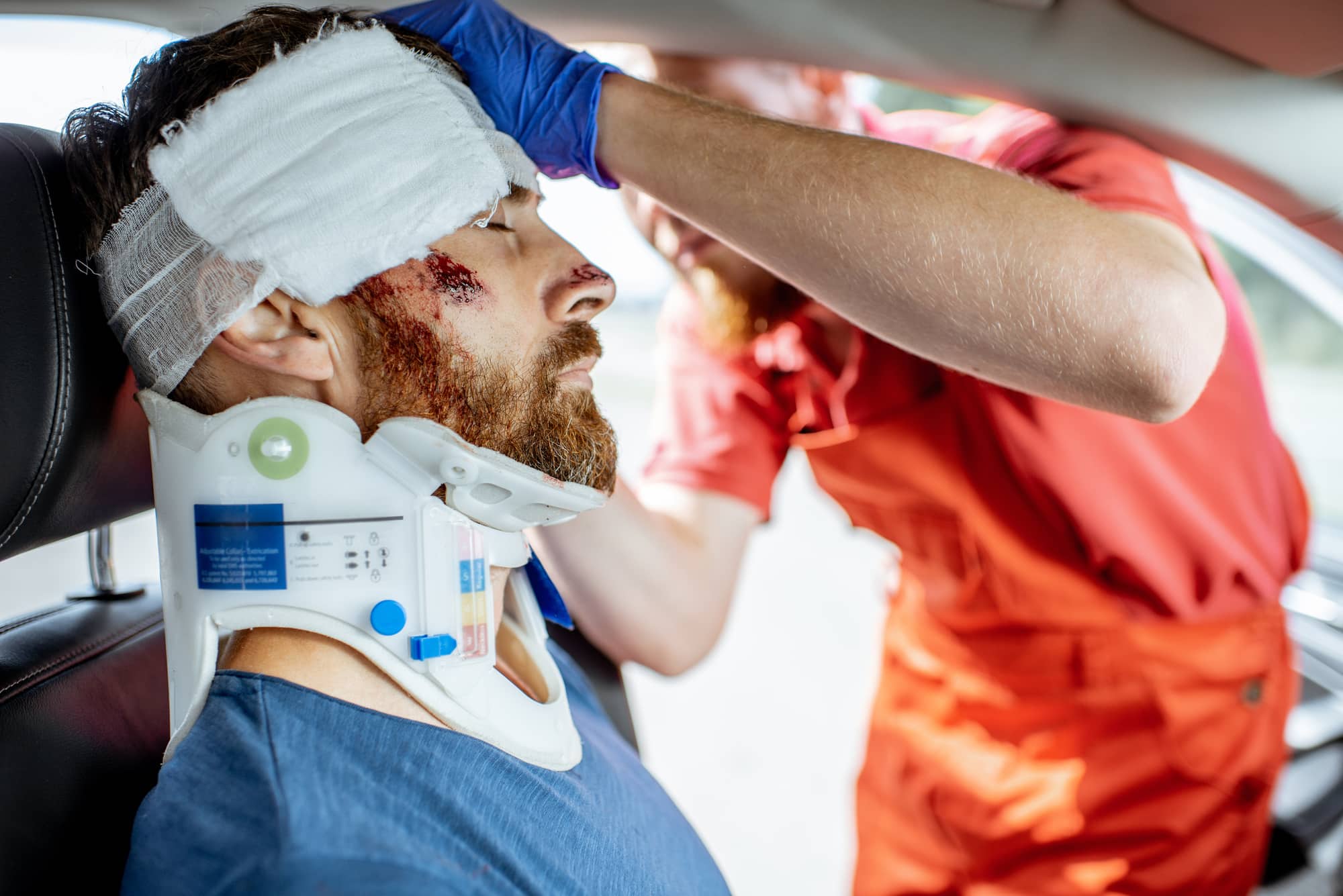Car accidents can have profound psychological impacts on individuals involved in such traumatic events. Beyond the physical injuries and property damage, the psychological effects of car accidents can have a long-lasting and far-reaching impact. The experience of a collision can trigger a range of emotional and psychological responses, from shock and fear to anxiety and depression.
Understanding and addressing these psychological impacts are crucial for the well-being of those directly affected and for promoting road safety and supporting accident survivors in their recovery process.
This article will delve into the psychological effects of car accidents, exploring their causes, symptoms, and potential interventions to help individuals cope with and overcome the psychological aftermath of such traumatic incidents.
1. Post-Traumatic Stress Disorder (PTSD)
PTSD is a psychological condition experienced by individuals after exposure to traumatic events, such as concussions from car accidents. It can be characterized by distressing, intrusive memories, flashbacks, nightmares, and emotional distress in response to trauma reminders.
In addition, it can cause physical symptoms such as fatigue, insomnia, or difficulty concentrating. Symptoms of this disorder may appear soon after a traumatic event or may not manifest until months or even years later.
Individuals who experience an automobile accident are particularly vulnerable to developing PTSD due to the suddenness and severity of the event. Treatment for individuals suffering from car accident-related PTSD typically involves cognitive behavioral therapy (CBT), which helps patients confront their thoughts and feelings about their traumatic experiences and aids in their emotional healing.
2. Acute Stress Reaction (ASR)
Experiencing ASR following a traumatic event may lead to long-term emotional and physical consequences. It’s a short-term psychological response to a highly traumatic event, typically associated with car accidents.
Moreover, it’s characterized by dissociative and anxiety symptoms that can occur immediately after the trauma or in the following days, weeks, or even months after the incident. Symptoms of ASR include sleep disturbances, intrusive memories of trauma, flashbacks, hypervigilance, decreased concentration levels, and difficulty managing emotions such as depression and anger.
It’s important to note that not all car accident cases are accompanied by these symptoms. However, it’s prevalent for individuals involved in an auto accident to experience some degree of distress to cope with their feelings about the trauma. As such, it is essential for those experiencing ASR to receive proper medical attention from mental health professionals who specialize in dealing with post-traumatic stress disorder-related issues.
3. Depression And Mood Disorders
The emotional repercussions of a traumatic event, such as an auto accident, can manifest as depression and other mood disorders. People who experience car accidents may develop long-term mental health issues that affect their daily functioning.
Depression is one of the most common mental health problems associated with car accidents and can include feelings of hopelessness, loss of interest in activities once enjoyed, fatigue or lack of energy, difficulty concentrating or making decisions, changes in sleep patterns or appetite, and persistent feelings of sadness.
4. Anxiety Disorders
Anxiety disorders can be triggered by a traumatic event and significantly affect an individual’s mental health. Following a car accident, individuals can experience excessive fear and distress that interferes with their ability to function normally in everyday life. This can manifest in panic attacks or extreme avoidance of certain activities or places, which can be related to the crash.
In addition, some individuals may develop irrational fears associated with driving after experiencing whiplash or other physical injury. If untreated, anxiety disorders can lead to further physical and psychological issues for the individual affected.
Treatment for anxiety following a car accident is available through various methods, such as CBT and medications prescribed by psychiatrists or physicians. It’s crucial for those dealing with severe anxiety symptoms following an accident to seek professional help to manage their condition effectively and reduce its impact on their life.
5. Cognitive Impairments
Cognitive impairments are a potential consequence of car accidents, impacting individuals with long-lasting effects. Cognitive impairment is a broad term that includes memory, language, executive functioning, and attention difficulties.
These can manifest as problems with concentration and organization or difficulty finding the right words to express oneself. Memory impairments may include an inability to remember specific details or events before and after the accident.
In some cases, cognitive impairments after a car accident can be short-term, while in others, they can develop into more chronic conditions. Long-term cognitive impairments may also increase the risk of cognitive decline, as they can affect the brain’s hippocampus, which is responsible for learning and memory.
6. Sleep Disorders
Sleep disorders are a potential consequence of traumatic events, such as car accidents, and can have significant implications for an individual’s physical and mental health. Those affected by car accidents may experience insomnia or hypersomnia.
Insomnia is characterized by difficulty falling or staying asleep, leading to extreme fatigue during waking hours. On the other hand, hypersomnia is associated with prolonged periods of sleep or frequent naps throughout the day and night.
Moreover, disrupted sleep patterns have been linked to an increased risk of depression in individuals who have experienced severe car accidents. Treatment for PTSD-related sleep disorders often includes CBT, which focuses on helping individuals develop more effective coping strategies for managing trauma-related distress from their car accident experience.
Conclusion

The psychological impacts of car accidents can have long-lasting effects. Post-traumatic stress disorder, acute stress reaction, depression and mood disorders, anxiety disorders, cognitive impairments, and sleep disorders are all potential outcomes. Therefore, it’s essential to recognize the signs of these conditions to get help as soon as possible.
Mental health professionals are available to support and guide those affected by a car accident. Additionally, having a solid family and friends support network can assist in the recovery process.

